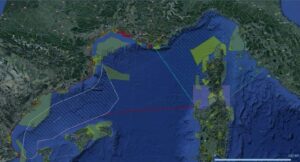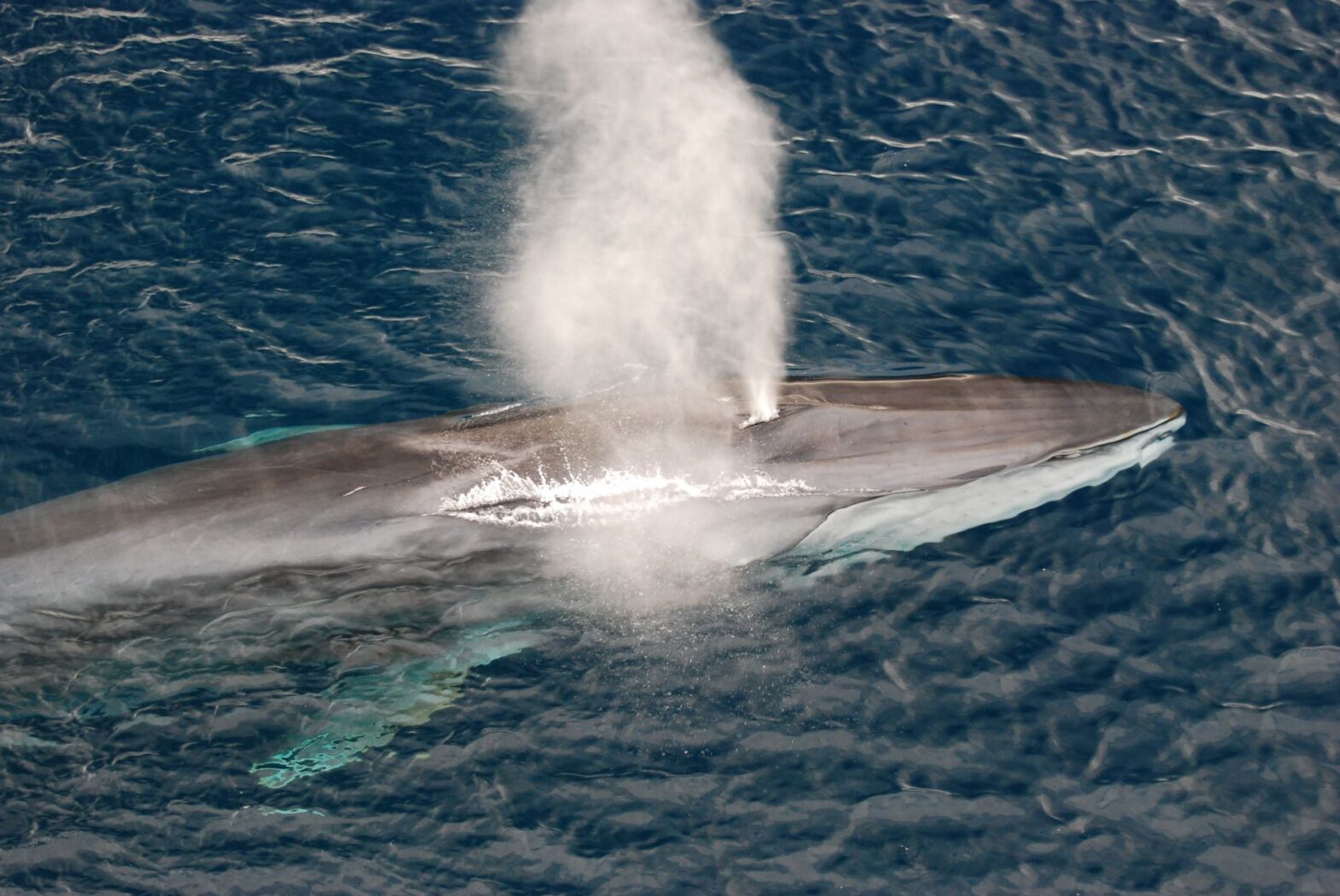IMO regulates shipping in the NW Mediterranean to protect endangered whales
At the same time as the COP15 of the Convention on Biological Diversity is being held in Montreal, today in London, the Marine Environment Protection Committee (MEPC) of the International Maritime Organisation (IMO) has decided, at the proposal of Spain, France, Italy and Monaco, to declare the North-Western Mediterranean region a Particularly Sensitive Sea Area (PSSA) with the aim of reducing ship collisions with the large cetaceans (sperm whales and fin whales), which still inhabit this area of intense maritime traffic.
«The North-West Mediterranean PSSA is particularly relevant because it is the first to be proposed and approved by the IMO with the aim of reducing the risk of ship strikes by endangered whales,» said Nicolas Entrup, OceanCare’s Director of International Relations.
Indeed, this decision of the MEPC, which is holding its 79th meeting from 12 to 16 December, is a recognition of the fact that collisions with ships are the main cause of human-induced death for fin whales and sperm whales in the north-western Mediterranean, an area of great environmental value. The movement of ships in this area is very high, around 220,000 per year, with average speeds of between 14 and 20 knots in the case of merchant vessels or even up to 35 knots in the case of high-speed vessels.

These collisions contribute significantly to the continuing decline in the abundance of individuals of these two species, and risk eventually driving them out of the region. Indeed, subpopulations of fin and sperm whales in the Mediterranean Sea are classified as endangered on the International Union for Conservation of Nature (IUCN) Red List, and the fin whale population has recently been estimated to be only about 1,800 mature animals, half of what was previously estimated.
«Whales are the largest animals in the world, but compared to a container ship, they are tiny. In the event of a collision between the two, what is the whale’s chance of survival? The best available scientific data indicates that the probability of a collision having a lethal effect on a whale is very low when the speed of the ship does not exceed 10 knots,» said Carlos Bravo, OceanCare’s representative in Spain and present at the IMO’s MEPC meeting in London.
Scientific studies have concluded that in the north-western Mediterranean it is not possible to predict the areas where these large whales are present at any given time, so the option that ships could divert their routes to avoid colliding with them is not feasible in this case. Therefore, there is only one possible option to effectively avoid fatal collisions of ships with these cetaceans: for ships to reduce their speed.
Indeed, in November 2021, the Scientific Committee of the Agreement on the Conservation of Cetaceans of the Black Sea, Mediterranean Sea and Contiguous Atlantic Area (ACCOBAMS) adopted a recommendation stressing that «when it is not possible to establish routes to keep whales separated from ships, the only proven measure to reduce fatal collisions with most large whales is to reduce speed».
Unfortunately, the associated protective measures proposed for the PSSA are only recommendations to seafarers, such as that «to navigate with particular caution within the NW Med PSSA, when and where large and medium cetaceans are present, and to limit their speed to between 10 and 13 knots as voluntary speed reduction».
«Spain, France, Italy and Monaco have taken a first step in the right direction by agreeing to jointly propose an PSSA in these environmentally valuable waters, but the protection measures included in their proposal are of a voluntary nature and are unlikely to significantly reduce the risk of lethal collisions with great whales,» Bravo said. «Only the adoption of a mandatory vessel speed reduction measure would effectively protect large whales while creating a level playing field for all shipping companies,» he added.
In addition, there are other environmental benefits to slowing down ships. Among the various operational measures available, speed reduction has been shown to be the most cost-effective way to reduce the environmental impact of shipping, enabling emissions of greenhouse gases and air pollutants such as sulphur oxides (SOx), nitrogen oxides (NOx) and black carbon, as well as underwater noise, to be reduced very significantly and with immediate effect.
Environmental value of the area included in the PSSA
The NW Mediterranean PSSA comprises the waters between Valencia and Genoa, defined by cetacean researchers as critical habitat for fin whales and sperm whales, and includes areas of extreme environmental value. These include:
- the Mediterranean Cetacean Migration Corridor, located between the coast of Catalonia and Valencia and the Balearic Islands, declared a Marine Protected Area by the Spanish Government and a Specially Protected Area of Mediterranean Importance (SPAMI) by the Barcelona Convention,
- the Pelagos Cetacean Sanctuary in the Ligurian Sea,
- the Important Marine Mammal Areas (IMMA) called «Gulf of Lions Shelf» and «Slopes and Canyons System of the North-Western Mediterranean Sea».
